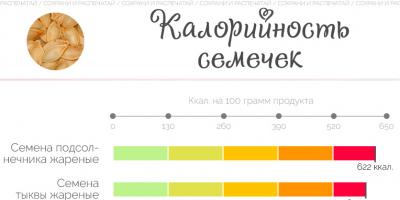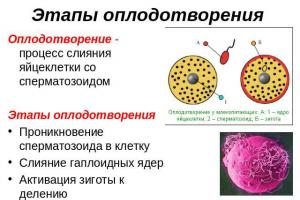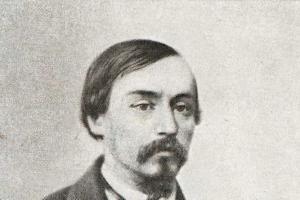One of the most ancient plants used by folk healers for herbal medicine of many diseases is poppy. It belongs to the annual plants of the poppy family. The raw materials for phytocollections are petals, flowers and leaves of the plant, less often seeds.
Poppy is known for its analgesic, hypnotic, expectorant properties. It is used for diseases of the central and peripheral nervous system, digestive organs, insomnia, bruises, insect bites.

The herb has in its composition: alkaloids - stylopine, protopin, coptisin, methylassimylobin, isocoridine, as well as aliphatic alcohols and vitamin C.
Flowers contain: anthocyanins and alkaloids (coptisin, reaginin, readin), pectin, as well as magnesium and iron salts.
Plant heads: alkaloids and vitamin E, fatty acids (palmitic, as well as linoleic and stearic).
Among the most famous substances that make up the poppy, codeine and papaverine are widely known, and, of course, morphine - they can suppress severe pain symptoms and relieve spasms.
Application in traditional medicine recipes
- Phyto healers use poppy seed extract in the treatment of acute, to get rid of, neoplasms, in violation of sleep cycles and acute hemorrhoids.
- Poppy flowers soften the symptoms of pharyngitis, tracheitis, bronchitis. Reduce .
- Powder from the petals helps speedy healing of wounds when applied topically.
- A decoction of poppy heads improves the menstrual cycle of women. An infusion of the leaves of the plant tones and reduces fever, and has also established itself as a diaphoretic and sedative herbal medicine.
Recipes for internal use
1. (the cough center is inhibited) and exacerbation of gastritis: combine three grams of dried poppy petals with two hundred milliliters of very hot water. Cool and strain.
(the cough center is inhibited) and exacerbation of gastritis: combine three grams of dried poppy petals with two hundred milliliters of very hot water. Cool and strain.
Take twenty milliliters orally five times a day, before taking food.
For problems with falling asleep - take the infusion just before bedtime.
3. With a breakdown, a decoction of honey helps: dilute twenty grams of honey in two cups of water, boil twenty grams of poppy petals in this solution for ten minutes in a water bath. Take ten milliliters in the morning, evening and afternoon.
4. With severe hemorrhoidal pain and severe inflammation of the lung tissue, the treatment is carried out with poppy seeds - crushed and diluted with water until a white, milky liquid is obtained - milk. Inside take half a glass four times a day.
5. With pain accompanying cystitis, a single dose of ten grams of seeds will bring relief.
6. With attacks of pain caused by spasm of the coronary arteries, atherosclerotic lesions of large and small vessels, migraine pains, spastic forms of colitis, bile - stone and renal colic, dosage forms based on papaverine are prescribed.
7. With measles, diarrhea, whooping cough, in children in pediatric practice, a decoction of poppy flowers (in milk) is occasionally used.
Outdoor use
- Freshly squeezed poppy juice wipes the skin after, as well as other insects.
- and pains in various joints use steamed leaves and boxes in the form of thermal compresses.
- To remove hair follicles from parts of the body, it is necessary to rub the ashes obtained by burning the whole plant. The hairline at the site of rubbing no longer grows.
- With pinching of the sciatic nerve and acute sciatica, rubbing from seeds and honey is used. The pain goes away almost immediately.
Phytocollections
1. Twenty grams of phytocollection, which includes poppy petals, wild mallow flowers, coltsfoot leaves, Veronica officinalis herbs, (in equal volumes) are mixed with 300 ml of boiling water. After insisting for about one hundred and twenty minutes, filter. Reception is recommended for severe dry cough that accompanies whooping cough and bronchi, twenty milliliters six times a day.
2. In a small thermos for the night, pour three cups of boiling water over a mixture of one volume of carefully crushed rhizomes of the femur - saxifrage and two volumes of poppy petals (families). After straining, drink a quarter cup of infusion eight times during daylight hours with an exhausting cough symptom
3. As a mild diaphoretic and excellent expectorant, a mixture of the following plants is used: lungwort herb (three parts), poppy family petals (three parts), heartleaf linden (two parts), scepter-shaped mullein (three volumes), forest mallow (three parts) , black elderberry flowers (two parts), coltsfoot (two parts), buckwheat (two parts). Forty grams of phytocollection pour 1000 ml of very hot water. Stay all night. After straining, use inside a quarter of the volume of the mug every sixty minutes.
4. With a tendency to epilepsy - lily of the valley - leaves (twenty grams), linden - heart-leaved flowers (30 grams), as well as oregano herbs (30 grams), peony roots (one hundred grams), and initial herbs (one hundred grams), and white mistletoe (forty grams), valerian rhizome (forty grams), elecampane roots (forty grams), poppy flowers (30 grams), horsetail grass (30 grams).
Grind the ingredients thoroughly. Combine forty grams of the mixture with a half liter container of significantly hot water, boil in a water bath for five minutes. After cooling, strain. The tool has a pronounced anticonvulsant and mild sedative effect, and, of course, antispasmodic. It also reduces pressure very well. 
5. In case of not severe form - heather flowers (twenty grams), poppy flowers of the family (twenty grams), valerian roots (twenty grams), as well as heart-leaved linden flowers (twenty grams), peppermint leaves (twenty grams). Crush the components of the chalk, Mix thirty grams of the resulting mixture with 1000 ml of boiling water.
Hold for fifteen minutes in a closed saucepan and filter through a loose cloth. Infusion take three mugs per daylight hours. It is recommended to add a preparation of hawthorn twenty grams to honey. The tool perfectly relieves spasms, anesthetizes and soothes.
6. Treatment of laryngitis. Forest mallow flowers (one volume, and sowing buckwheat (one volume), as well as wild poppy (one volume) and coltsfoot (one volume), combine with lung grass (one volume).
The crushed components in the amount of fifty grams are poured into 1000 ml of boiling water. After keeping overnight, filter and drink in five doses. The infusion has an anti-inflammatory, antiseptic, enveloping and expectorant effect, and also strengthens the body.
Contraindications
Collections containing poppy seeds have many contraindications. Among them, the most important are: a tendency to anoxemia, oppression of the ability to breathe, emphysema, bronchial asthma, nausea and vomiting, chronic alcohol intoxication, severe liver and kidney diseases, heart failure.
Consultation with a specialist before taking poppy-based herbal teas is a must!
Poppy, the benefits and harms of which are described below, is not only a beautiful ornamental plant, it is also an effective medicine. The healing properties of the plant have been known to mankind since ancient times. Images of flowers were found on the walls of Egyptian tombs. In Greek mythology, he was associated with the goddess of fertility - Demeter and the god of sleep - Hypnos. Flowers were laid on the altar for the latter.
The famous ancient poet Homer wrote about the plant as a means of blunting mental pain. In the East, it was customary to serve poppy tea at funerals in order to alleviate grief. The miraculous properties of poppy have been described more than once by the great healers of antiquity. Hippocrates used the plant to treat various pathologies. He characterized the poppy as a hypnotic and narcotic. Galen recommended the use of poppy preparations for the treatment of migraine, dizziness, asthma, cough, epilepsy, and jaundice.
Now the plant also has a wide application. Maca preparations treat cough, dysentery, diarrhea, pathology of the genitourinary system. The plant is also used in cooking. Seeds are sprinkled on baked goods. The seeds are ground to a powder consistency, mixed with honey, butter, milk and prepared fillings for pies and rolls. In addition, poppy oil is prepared from the seeds of the plant, which is used to season salads and flavor the dough.
As already mentioned, poppy is a great ornamental plant. Gardeners appreciate it for the amazing beauty and color of flowers, size, ease of cultivation and care. In addition, poppy has a pleasant aroma. Poppy oil is widely used in cosmetology. It contains vitamin E. The oil is added in the production of soaps and creams.
Botanical characteristics of poppy
Poppy is an annual herbaceous plant belonging to the Poppy family and reaching a height of sixty centimeters or more. The plant is equipped with a stubble, slightly branched rhizome that goes deep into the soil, stem wide elliptical ovate or oblong-ovate sharp-toothed stalk-bearing leaves, large oval or rounded purple, red, or pink flowers.
The fruits of the plant are single-celled cylindrical club-shaped or ovoid boxes. North America, Africa, Eurasia, Europe - the habitat of the plant. Poppy grows on sandy, loamy soils with good drainage, rocky slopes.
 How and when should plant materials be harvested?
How and when should plant materials be harvested?
For the manufacture of medicines, mainly leaves of the plant are used. The collection of raw materials is recommended to be carried out during the period of full ripening of the poppy. The rhizomes must be harvested before the bolls mature. They need to be dug up, washed, chopped, and then laid out on paper to dry. It is desirable to dry raw materials on the street under a canopy. In order to speed up the process, you can use a special dryer. You can store blanks for a year, no more.
Poppy - benefit and harm, composition
The plant contains a significant amount of medicinal substances:
- alkaloids;
- morphine;
- squirrel;
- water;
- rubber
- Sahara;
- mucous substances;
- resins;
- wax;
- micro and macro elements;
- vitamins B, E;
- ascorbic acid.
Preparations based on the plant in question have sedative, diaphoretic, astringent, hypnotic, analgesic, hemostatic, antispasmodic, antitumor and antihelminthic properties.
 ➡ Insomnia: application of infusion.
Brew ten grams of poppy seeds in boiled water - two hundred milliliters. Infuse the remedy in a thermos for three hours. Drink 100 ml of filtered drink before going to bed. If you want, you can add some honey to the remedy.
➡ Insomnia: application of infusion.
Brew ten grams of poppy seeds in boiled water - two hundred milliliters. Infuse the remedy in a thermos for three hours. Drink 100 ml of filtered drink before going to bed. If you want, you can add some honey to the remedy.
➡ Fever: poppy therapy. Steam twenty grams of dried crushed poppy leaves in two hundred milliliters of boiling water. Let the composition brew. Take ½ cup of strained drink twice a day.
➡ Poppy as an antidote. This remedy is recommended for use in insect bites. Lubricate the affected areas of the skin with fresh poppy juice.
➡ Bronchitis: decoction therapy. Mix ten grams of poppy with the same amount of creeping thyme and violet flowers. Steam the mixture with freshly boiled water - 200 ml. Boil the product over low heat for a quarter of an hour. Take 100 ml of strained drink at least three times a day.
➡ Hemorrhoids: treatment with poppy milk. Combine ten grams of poppy seeds with water. Take 50 ml twice a day.
➡ Poppy in the treatment of liver pathologies. Mix a spoonful of poppy seeds with the same amount of quality honey. Fill the mixture with warm water. Divide the volume into four equal parts and drink during the day.
Poppy in cosmetology
The plant is valued not only by cosmetologists, but also by representatives of the beautiful half of society who take care of themselves. Poppy-based masks contribute to: moisturizing, rejuvenation, tightening, nourishing the dermis.
➡ Mask for the combined type of dermis. Pound a spoonful of poppy seeds, and then combine with rice flour - the same amount, olive oil - 10 ml and kefir - 30 ml. Mix the ingredients thoroughly and apply the mass on a cleansed face. After a quarter of an hour, wash your face in cool water.
➡ A mask that helps nourish the dermis. Take one kiwi, peel, mash and combine with poppy seeds - 10 g. Mix the ingredients thoroughly. Process the composition of the face. After twenty minutes, wash off the mask with cool water.
➡ Mask for skin rejuvenation. Mix crushed poppy seeds with olive oil. Apply the product on a clean face for a quarter of an hour. Wash your face after the procedure.
➡ Preparation of moisturizing lotion. Pour 30 grams of finely chopped poppy leaves with boiling water. Set aside the composition for two hours. After filtering the composition, use it to treat the dermis of the face twice a day: in the morning and before going to bed.
Contraindications!
It is strictly forbidden to take funds based on poppy with individual intolerance, chronic alcoholism, emphysema. Children cannot be treated with poppy medicines. You should not use poppy for medicinal purposes during pregnancy and lactation.
Do not abuse poppy preparations, and do not exceed the dosages indicated in the recipes. This can cause deterioration of the condition, as well as poisoning. Vomiting, nausea, headaches, malaise, dizziness - signal poisoning. In this case, the drug should be stopped.
In addition, an overdose of drugs from the plant in question is fraught with damage to the central nervous system. Take care of yourself and be vigilant. Medicines will be beneficial only if they are used appropriately.
Treating insomnia without medication
Over a thousand years of history, mankind has accumulated many ways insomnia treatment. For these purposes, various plants are used, as well as drugs that help calm, normalize sleep, the ability to withstand stressful situations, and increase immunity.
Since ancient times, people have used plants to treat various diseases. Possessing a unique complex of useful substances, the ratio of which is very difficult to reproduce artificially, they have a mild therapeutic effect.
You should know that the positive effect of medicinal plants manifests itself a long time after the start of the intake. The whole variety of plants that are used to treat sleep disorders can be conditionally divided into 3 groups:
- having sedative and hypnotic properties (valerian officinalis, five-lobed motherwort, common hops, etc.);
- with general strengthening and adaptogenic properties (Rhodiola rosea, ginseng, etc.);
- possessing properties to eliminate concomitant factors of the disease (blood red hawthorn, wild strawberry, etc.).
The first group includes plants, the preparations of which give a quick effect, but most often do not affect the cause of sleep disturbance. Medicinal preparations (decoctions, infusions, tinctures, teas) from medicinal plants help to calm down, relax. They have a general strengthening effect, can be used for causeless fears, rapid physical and mental fatigue, headaches, etc.
Valerian is a perennial herbaceous plant.
For therapeutic purposes, the roots and rhizomes of valerian officinalis are used, which are harvested in the fall after harvesting the seeds. The plant contains:
essential oil, alkaloids, tannins, organic acids, etc. Decoctions, infusions, tinctures, powders are prepared from valerian. Used to treat many diseases accompanied by increased nervous excitability, unreasonable anxiety and sleep disturbance. Valerian-based preparations are used as a sedative remedies for insomnia, neurosis, migraine, palpitations, hypertension, etc.
Recipe 1. 1 tablespoon of crushed valerian root is poured into 1 glass of cold boiled water and infused for 7-8 hours. The finished infusion is filtered. Take 1 tablespoon 3 times a day and at bedtime. With increased nervous excitability, the dose can be increased to 0.5 cup 2-3 times a day.
Recipe 2. 1 tablespoon of crushed valerian root is poured into 1 cup of hot water and heated in a water bath for 15-20 minutes. The broth is cooled at room temperature and filtered. Take 1 tablespoon 3 times a day and at bedtime.
Recipe 3. 1 tablespoon of valerian roots is poured into 1 glass of cold boiled water and infused for a day. The finished infusion is filtered. Take 0.3 cups 2-3 times a day and at bedtime. Infusion recommended take for insomnia caused by nervous tension.
Recipe 4. 2 tablespoons of crushed valerian roots are poured with 1 glass of vodka and infused for 2 weeks in a dark, cool place. Ready tincture is filtered. Take 15-20 drops 2-3 times a day.
Origanum vulgaris is a perennial herbaceous plant. For medicinal purposes, the herb of the plant is used, which contains essential oil, ascorbic acid, phytoncides, tannins, etc.
Preparations based on oregano have a calming effect, reduce irritability, improve sleep and appetite, and raise the tone of the body. Their used for insomnia, headaches. Oregano can be introduced into the composition of fees and teas.
To prepare an infusion of oregano, pour 1 tablespoon of herbs with 1 glass of hot water and leave for 20-30 minutes. The finished infusion is filtered. Take 0.3 cups 2-3 times a day.
Oregano is also used externally. Plants wash their hair with a strong decoction for insomnia and headaches.
Lavender is a perennial semi-shrub plant. For therapeutic purposes, use the grass and flowers of the plant. They contain essential oil, tannins, bitterness and resins, coumarin, etc. Lavender-based preparations are used as sedatives for neurasthenia, headaches, insomnia, etc.
Recipe 1. 1 tablespoon of real lavender flowers is poured into 1.5 cups of hot water and infused for 10-15 minutes. The finished infusion is filtered. Take 1 tablespoon 2-3 times a day after meals.
Recipe 2. Mix 1 tablespoon of lavender flowers and 1 teaspoon of passionflower flowers. The mixture is poured with 2 cups of hot water and infused for 15-20 minutes. The finished infusion is filtered. Take 0.4 cups 2-3 times a day.
Lettuce is a herbaceous plant. Medicinal raw materials are young leaves, which contain carotene, ascorbic acid, vitamins E, group B, nicotinic and folic acids, calcium, magnesium, etc. Lettuce is widely used in folk medicine. It has a calming, anti-spasmodic, analgesic and mild hypnotic effect. In addition, lettuce improves appetite and digestion, is useful for hypertension, atherosclerosis, and heart disease. It is eaten mostly raw.
To prepare the infusion, 1 tablespoon of lettuce leaves is poured into 1 cup of hot water and cooled at room temperature. The finished infusion is filtered. Take 0.5 cups during the day for 1-1.5 hours before meals.
For the treatment of insomnia you can also use the fresh juice of the plant, which is taken 1-2 tablespoons before meals.
Poppy is an annual or perennial herbaceous plant. For therapeutic purposes, leaves, flowers, milky juice, capsule fruits and poppy seeds are used. The plant contains alkaloids, organic acids, tannins, saponins, bitterness, resin, mucus, etc. Poppy-based preparations are used as an analgesic, hypnotic and sedative. They are used insomnia, mental fatigue. The milky juice of the plant is recommended to be used only as directed by a doctor.
For insomnia treatment at home you can use poppy milk, poppy petals ground into powder, boiled in milk or honey, as well as alcohol tinctures, which are taken 10-15 drops 30 minutes before bedtime, help well.
Recipe 1. When chronic insomnia take poppy milk 0.3 cups 3-4 times a day and at bedtime.
Recipe 2. 1 box of poppy sleeping pills is poured into 0.5 cups of hot water and heated for 10-15 minutes in a water bath. The finished broth is cooled at room temperature and filtered. Take 1-2 teaspoons before bed.
Recipe 3. 1 teaspoon of hypnotic poppy flowers is poured into 0.5 cups of hot water and heated in a water bath for 10-15 minutes. The finished broth is cooled at room temperature and filtered. Take 1 tablespoon 30-40 minutes before bedtime.
Recipe 4.1 A teaspoon of sleeping pill poppy flowers is poured into 1 cup of hot milk and heated in a water bath for 10-15 minutes. The finished broth is cooled at room temperature, filtered, boiled milk is added to a volume of 200 ml. Take 1 tablespoon 20-30 minutes before bedtime.
Melissa, lemon mint, or mother liquor, is a perennial herbaceous plant. For therapeutic purposes, use the grass of the plant, which is harvested during the flowering period. Melissa contains essential oil, tannins, bitterness, vitamin C, etc.
In medicine, decoctions, infusions, tinctures and oil from the plant are used. Plant-based preparations have a calming effect and are used for insomnia, dizziness, fainting, pain in the heart, palpitations, to improve appetite. Included in soothing collections and teas.
Recipe 1. 1 tablespoon of lemon balm herb is poured with 1 glass of hot water and infused for 30-40 minutes. The finished infusion is filtered. Take warm 1 tablespoon 3 times a day and at bedtime.
Recipe 2. 1 tablespoon of chopped herb lemon balm is poured with 1 glass of vodka and infused for 8-10 days in a warm, dark place. Ready tincture is filtered. Apply 15 drops 3 times a day.
Mint is a perennial herb. For therapeutic purposes, peppermint herb is used, which is harvested during the period of budding and flowering. Mint contains essential oil, tannins, organic acids, bitterness, carotene, etc. Plant-based preparations are used in the form of decoctions, infusions. They have a calming, regulating, strengthening effect and are used for nervous and heart diseases, and headaches. Peppermint is a part of many medicinal preparations and teas.
Recipe 1. Pour 1 tablespoon of peppermint leaves with 1 cup of hot water and infuse for 15-20 minutes. The finished infusion is filtered. Take warm 2-3 times a day 20-30 minutes before meals.
Recipe 2. Pour 1 tablespoon of peppermint leaves with 1 cup of hot water and heat in a water bath for 15 minutes. The finished broth is cooled at room temperature and filtered. Take 0.3-0.5 cups 2-3 times a day and at bedtime.
Peppermint can be used to treat insomnia. It is taken 15-30 drops 3 times a day.
Oats are an annual cereal plant. For therapeutic purposes, grains, root, straw and green oats are used. Plant grains contain proteins, starch, B vitamins, enzymes, etc.
Kissels from infusion of oatmeal are very useful. Mucous decoctions of oats are used as a tonic and sedative for overwork, insomnia, accompanied by causeless fears, loss of appetite, rapid physical and mental fatigue.
Oats go well with other medicinal plants, especially valerian.
Recipe 1. 1 cup of oatmeal or oat grains is poured into 1 liter of hot water and boiled until it thickens. Add 1 tablespoon of honey to the finished broth and cook for another 2-3 minutes. Take warm 0.5-1 glass 2-3 times a day.
Recipe 2. 1 tablespoons of green oat straw is poured with 1 glass of vodka and infused for 2 weeks in a cool dark place. Ready tincture is filtered. Take 20-30 drops per 1 tablespoon of water 2-3 times a day and at bedtime.
Recipe 3. 1 tablespoon of grains of oats is poured with 2 cups of water and boiled until thickened. Ready broth is filtered. Drink during the day and before bed.
Recipe 4. In the evening, pour 2 tablespoons of oat seeds with 1 glass of hot water. In the morning, the infusion is heated in a water bath for 30-40 minutes. The finished broth is cooled at room temperature. Drink during the day.
Passiflora is a semi-shrub plant. For therapeutic purposes, use the grass of passionflower incarnate. It contains alkaloids, flavonoids, ascorbic acid, saponins, coumarins, etc. The fruits contain a large amount of vitamin C, there are salts of potassium, calcium, iron, etc. Plant-based preparations are used to treat insomnia, relieve nervous tension, etc. For For this purpose, a tincture of the plant is used, which is taken 10-15 drops 2-3 times a day and at bedtime. It can also be introduced into the composition of medicinal teas (no more than 1 teaspoon per 1 glass).
Peony, or Maryin root, is a perennial herbaceous plant. Medicinal raw materials are tubers, grass and seeds of the evading peony. They contain sugars, starch, essential oils, organic acids, tannins, resins, flavonoids, vitamin C. In folk medicine, they are used as a sedative for insomnia, nervous system disorders, etc. Teas, kissels, drinks and sweets are prepared from the root. .
To prepare the infusion, 1 tablespoon of crushed peony roots is poured with 1 glass of vodka and infused for 8-10 days in a warm, dark place. Ready tincture is filtered. Take 20-30 drops 3 times a day.
 Bright and attractive flowers can decorate any flower garden. But not always their usefulness is limited to decorative. When used correctly, many garden plants can prevent or even cure serious diseases. Some of them are widely used in cooking. Just such crops include poppy, many decorative varieties of which are popular among gardeners. So, the topic of our conversation today will be poppy, we will discuss its beneficial properties and contraindications, as well as its use in traditional medicine and cooking.
Bright and attractive flowers can decorate any flower garden. But not always their usefulness is limited to decorative. When used correctly, many garden plants can prevent or even cure serious diseases. Some of them are widely used in cooking. Just such crops include poppy, many decorative varieties of which are popular among gardeners. So, the topic of our conversation today will be poppy, we will discuss its beneficial properties and contraindications, as well as its use in traditional medicine and cooking.
Poppies are herbaceous annuals or perennials that can reach one meter in height. Their flowers are especially bright and attractive, painted in red, yellow, cream and even black tones.
Traditional medicine experts have come to the conclusion that all parts of the poppy have medicinal qualities. Many years ago, it was used to make drinks that eliminate pain and have a hypnotic effect. Basically, such funds were prepared from the unripe fruits of this plant. And over time, scientists have found that they contain substances that can cause drug intoxication and strong addiction.
Therefore, poppy cultivation is now prohibited in many states, although ripened plant seeds can be freely purchased at grocery stores. They are not capable of harming the body.
Useful properties of poppy
Poppy seeds are a source of healthy fats, sugars and proteins. They contain a number of vitamins represented by tocopherol, vitamin PP, as well as many minerals, including cobalt, copper, iron, phosphorus, sulfur and zinc.
From the seeds of some varieties of poppy, a surprisingly useful oil is obtained, which is used in cosmetology and perfumery.
In modern medicine, various pharmaceutical preparations are made on the basis of poppy, which treat various pathologies - from bronchitis to cancer. It is the poppy that underlies codeine (soothes cough), morphine (relieves pain), papaverine (relieves spasms). But most drugs with it are not commercially available, as they have narcotic qualities.
The use of poppy in traditional medicine
A decoction obtained from seeds has been used previously to optimize digestive processes. Also, funds with poppy seeds were used as antihelminthic drugs.
Both earlier and in the modern world, medicines based on such a plant are used as a sedative for bronchitis. Traditional medicine experts advise combining poppy seeds with honey, preparing decoctions, infusions and tinctures based on them. Such remedies will help to cope with pneumonia, hemorrhoids, liver ailments, catarrh of the stomach, overwork and insomnia.
In folk medicine, poppy is used not only in the form of seeds. The benefits of steamed poppy leaves or its green heads are also known. On the basis of such plant materials, compresses are prepared for diseases of the joints, as well as remedies for the external elimination of tumors and bruises.
Poppy leaves are used to rub warts. And in some countries, on their basis, they prepare remedies for fever, toning the body. Even our ancestors used poppy roots. They were suitable for preparing a decoction for headaches and for eliminating inflammation of the sciatic nerve.
Among other things, poppy is widely used in cosmetology. The systematic use of masks and oils made from its seeds helps to make the skin healthy and well-groomed. Poppy oil is used to eliminate skin fatigue and to smooth wrinkles. It can also be of great benefit to the hair, preventing the split and restoring the hair along the entire length, as well as destroying dandruff.
Poppy contraindications, possible harm
Before using poppy for therapeutic purposes, readers of "Popular about Health" would not be out of place to consult a doctor. Indeed, under many conditions, such a herbal medicine is contraindicated. Thus, poppy seeds cannot be used to treat children under two years of age, the elderly and people with alcohol addiction. They can not be used for bronchial asthma, cholelithiasis and the problem of chronic constipation.
Application in cooking
Poppy seeds are widely used in cooking. So, in India, various sauces are prepared on their basis. In some countries, such an additive is used in the preparation of traditional bread or biscuits.
In many European countries, poppy is used in cooking as a filling for cakes, various buns or pies. Bagels with poppy seeds are distinguished by an amazing and unforgettable taste. There are also recipes for making pasta with sweet poppy seed sauce.
In many European countries, poppy is used as an additive to a variety of dishes as a spice. For example, in France, a sauce is prepared from its seeds by rubbing them with olive oil. This sauce is served with goose liver or fillet. In Japan, poppy seeds are added to many dishes, emphasizing their unusual, bright and aromatic taste. And in Italy, not only poppy seeds are used in cooking, but also its flowers with stems. So, the stems are somewhat similar in taste to spinach. The flowers perfectly complement light aperitifs and first courses.
In Russia, poppy seeds have traditionally been used to make wedding cakes and Christmas kutya.
So ordinary poppy can bring significant health benefits and even diversify the diet.
Sleeping poppy (Papaver somniferum L.)
Poppy- an annual herbaceous plant, has long been cultivated in culture. Belongs to the poppy family.
poppy family - papavegaseae
For medicinal purposes, flowers, "heads" and seeds are used.
Poppy- a genus of herbaceous plants. More than 125 species of it are known, distributed in Europe, Asia and Africa.
boxes oil poppy contains over 20 alkaloids (morphine, codeine, papaverine), organic acids, fatty oils and other chemicals. Currently, alkaloids are obtained from poppy pods, which have analgesic, antispasmodic and antitussive effects.
Eurasian poppy variety cultivated as oil poppy, subspecies: Tien Shan, Chinese, Dzungarian, Tarbagagai - as opium. Dry boxes are used as
medicinal raw materials for the production of alkaloids. From the opium poppy, opium was obtained - air-dried juice that flowed out of cuts in immature pods.
The most valuable of all types of poppy is the soporific poppy, or garden poppy. This plant is well known to everyone, so there is no need to give a detailed botanical description of it here. The fruit is a box.
Application for diseases
The medicinal value of the hypnotic poppy is due to the presence in its milky juice of valuable alkaloids (opium), often used in medicine as painkillers, sedatives and hypnotics.
In Ukraine, among the people, sowing poppy is used (poor in alkaloids).
Opium- this is a milky juice flowing from an incised, still green box (popularly called the “head”), which dries quickly and turns into a thick brownish-brown mass. Use of opium is recommended only on prescription.
In folk medicine, not only the milky juice of the poppy is used, but also its flowers and seeds.
Fresh juice from poppy heads popularly used for insect bites; poultices from the heads, as well as from the leaves - as an external pain reliever.
If seeds grind and dilute with water, you get a white, milk-like liquid, which is popularly called poppy milk; it is taken orally in large doses (half a glass three to four times a day) for hemorrhoids and severe pneumonia. Poppy seeds are also included in the composition of anthelmintics.
Morphine widely used as an anesthetic during surgical operations, with injuries accompanied by severe pain, and to prevent shock. Assign in preparing the patient for surgery to reduce negative emotions. It is used for pain associated with the pathology of internal organs (with malignant neoplasms, myocardial infarction, with various inflammatory processes, with renal and intestinal colic, etc.), it has a sedative and hypnotic effect. Sometimes morphine is used for severe coughing, shortness of breath associated with acute heart failure.
Morphine used mainly as an anesthetic, especially for injuries accompanied by severe pain, for surgical interventions in the pre- and postoperative period, for pain associated with diseases of the internal organs. It is used in myocardial infarction. The drug is often administered together with atropine, since morphine increases the tone of the vagus nerve.
Morphine able to eliminate pain of almost any intensity and any origin, but the greatest effectiveness of morphine is observed with prolonged pain; in acute and rapidly occurring pain, its effectiveness is less. Morphine reduces negative emotions such as fear, anxiety, depressed mood, feelings of hunger or fatigue. After taking it, there is euphoria. Therefore, with repeated doses of the drug, a pathological addiction to morphine often occurs. morphinism. Morphine is contraindicated in respiratory depression, anoxemia, pulmonary emphysema, bronchial asthma, inhibition of intestinal motility, nausea, vomiting, morphinism, alcoholism, liver failure. The co-administration of morphine with reserpine, which weakens the analgesic effect of morphine, is not recommended. Morphine can cause allergic reactions: itching, skin rash, etc. Morphine is not prescribed for children under 2 years of age. Patients over 50 years of age are given the drug at a lower dose.
Codeine significantly more depresses the cough center, is used mainly to calm the cough. Often used in combination with hypnotics and sedatives to enhance its own sedative properties.
Papaverine has pronounced antispasmodic and vasodilating properties. Under the influence of papaverine, an expansion of blood vessels is observed due to a decrease in the tone of smooth muscles, muscles of large vessels and arterioles, including the walls of the vessels of the heart and brain, and blood pressure decreases. It is widely used as an antispasmodic for hypertension, angina pectoris, migraine, peptic ulcer of the stomach and duodenum, pylorospasm, cholecystitis, spastic colitis, renal and hepatic colic, bronchial asthma.
IN Bulgaria drug was suggested "Glauvent" in the form of a dragee as an antitussive, it can be used to treat hypertension and endarteritis.
Experimentally it was found that the alcohol extract from poppy petals has a hemostatic effect.
IN Bulgarian folk medicine poppy is used against heavy menstruation, poppy powder is sprinkled on wounds to stop bleeding, poppy decoction is used for diarrhea.
IN Tibetan And Mongolian medicine dried poppy flowers were used in the form of powder for headaches, as an antipyretic, for fractures of the skull bones, ruptures of tendons and muscles, and for cramps in the limbs.
In folk medicine, not only the milky juice of the poppy is used, but also its flowers and seeds.
The greatest attention is paid to flowers, which for medicinal purposes are best collected from wild poppies and self-seeded poppies. It is necessary to dry the petals in the shade, laying them out in a thin layer so that they do not turn black.
Fresh juice from poppy heads is used for insect bites, children are given a decoction of immature boxes to sleep well, with insomnia; poultices from the heads, as well as from the leaves - as an external pain reliever. When the seeds are crushed and diluted with water, a white, milky liquid is obtained, which is called poppy milk; it is taken orally in large doses (half a cup 3-4 times a day) for hemorrhoids and severe pneumonia. Pounded seeds are mixed with honey and eaten for liver diseases. Poppy seeds are part of the anthelmintic drugs.
Water-alcohol infusion of the aerial part of the plant And powder have hypotensive, antispasmodic, anti-inflammatory, sedative, obstipation, antidiuretic properties, reduce the action of the pituitary lactogenic hormone. The aerial part of the poppy is used for dysentery, gastralgia and as a cholagogue for childhood jaundice.
IN Spain infusion and syrup from poppy petals is used as a diaphoretic.
IN Tibetan medicine the aerial part and flowers are used for pneumonia, pleurisy, dyspepsia in children.
IN Transbaikalia poppy is used as a wound healing, roots - as a sleeping pill.
IN Turkmenistan juice of poppy petals is used for sunstroke, for washing the eyes with their disease, with strong salivation, with smallpox, skin diseases.
IN India leaves, flowers, poppy seeds are used as a tonic, anti-febrile agent.
IN Japan poppy heads are used for oncological diseases of the abdominal organs, for sarcoma, condyloma, external forms of cancer, juice - for warts ("Plant Resources", 1985).
Preparations from poppy petals have a softening effect. They are used for increased nervous excitability, cardiac neuroses, inflammation of the mucous membranes of the upper respiratory tract, and chest pains.
But most of the attention is flowers, which for medicinal purposes are best collected from wild poppies and self-seeded poppies. It is necessary to dry the flower petals in the shade, laying them out in a thin layer so that they do not turn black.
Dry petals of poppy flowers, pounded into powder, are used for diseases of the stomach (especially with its catarrhs) in the form of a simple decoction, and the petals, ground into powder and boiled in milk or honey, or in the form of vodka tincture - from insomnia, with mental overwork.
Decoction of poppy flowers on honey it is useful to use with increased general sweating.
Poppy received a very wide application in Ukraine. It is used for insect bites, hemorrhoids, fatigue, general sweating, and also as a dietary food product.

Application methods
Decoctions of flowers
- in water or milk: 10.0-200.0; one tablespoon three times a day, and for insomnia - half an hour before bedtime;
- on honey: dilute one or two teaspoons of honey in a glass of water, boil two teaspoons of powder from poppy flower petals in this solution for 5-10 minutes and then use one teaspoon three times a day.
Vodka tincture: 10.0 15 drops three times a day, with insomnia - half an hour before bedtime.
Powder: one pinch (i.e. about 3.0) of powder three times a day before meals.
Grind the seeds, dilute with water and take 1/2 cup 3-4 times a day (Popov, 1973).
Decoction of flowers in water or milk (1:20) take a tablespoon 3 times a day 30 minutes before bedtime.
Decoction of flowers on honey: Dilute 2 teaspoons of honey in a glass of water, add 2 teaspoons of poppy petals (in powder), boil for 5-10 minutes. Take a teaspoon 3 times a day.
Vodka tincture(1:10) take 15 drops 3 times a day 30 minutes before bedtime.
Recipes
Decoction of flowers
- Brew 1 cup boiling water or 1 cup boiling milk 10 g flowers
- heat over low heat for 5 minutes
- insist 15-20 min.,
- strain.
Drink 1 tbsp. spoon 3 times a day, and with insomnia - half an hour before bedtime.
- Dilute 1-2 teaspoons of honey in a glass of water
- boil in this solution for 5-10 minutes 2 teaspoons of powder from poppy flower petals
Consume 1 teaspoon 3 times a day.
ATTENTION! All recipes are for reference only. Before use, consult with your doctor!








